【英語學習角落】來場桌上游泳!英文交流中華國粹「麻將」練智力
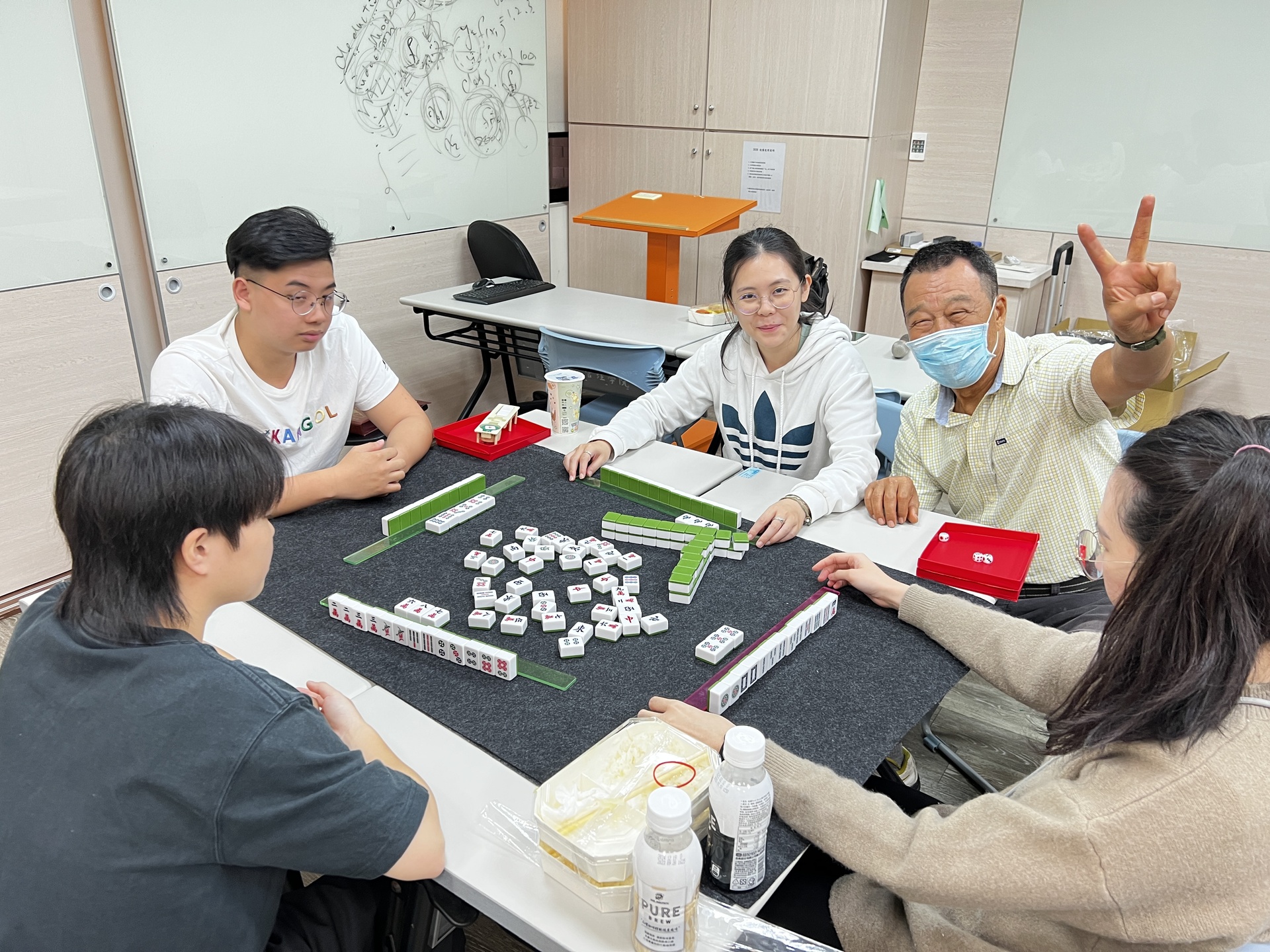
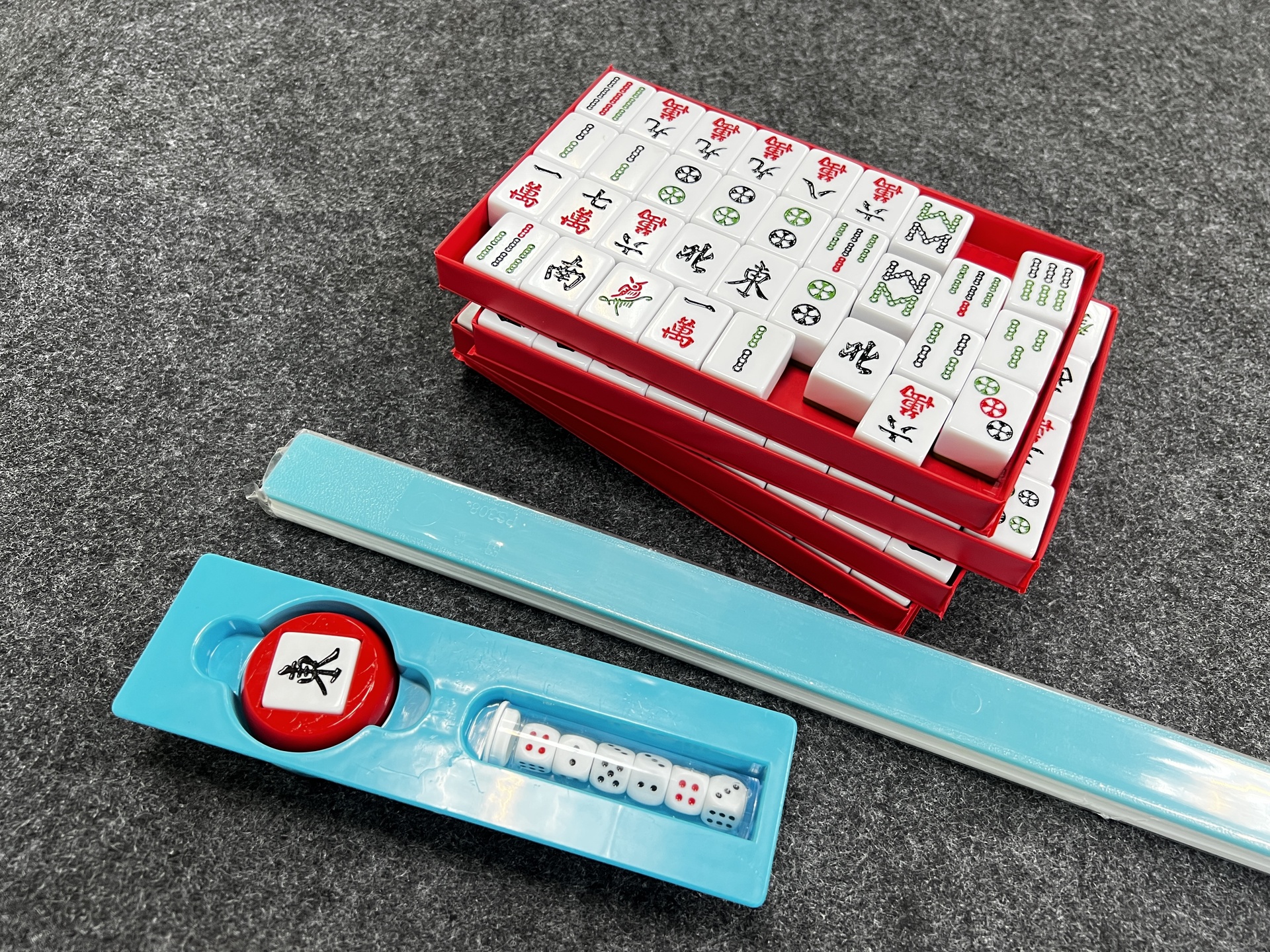
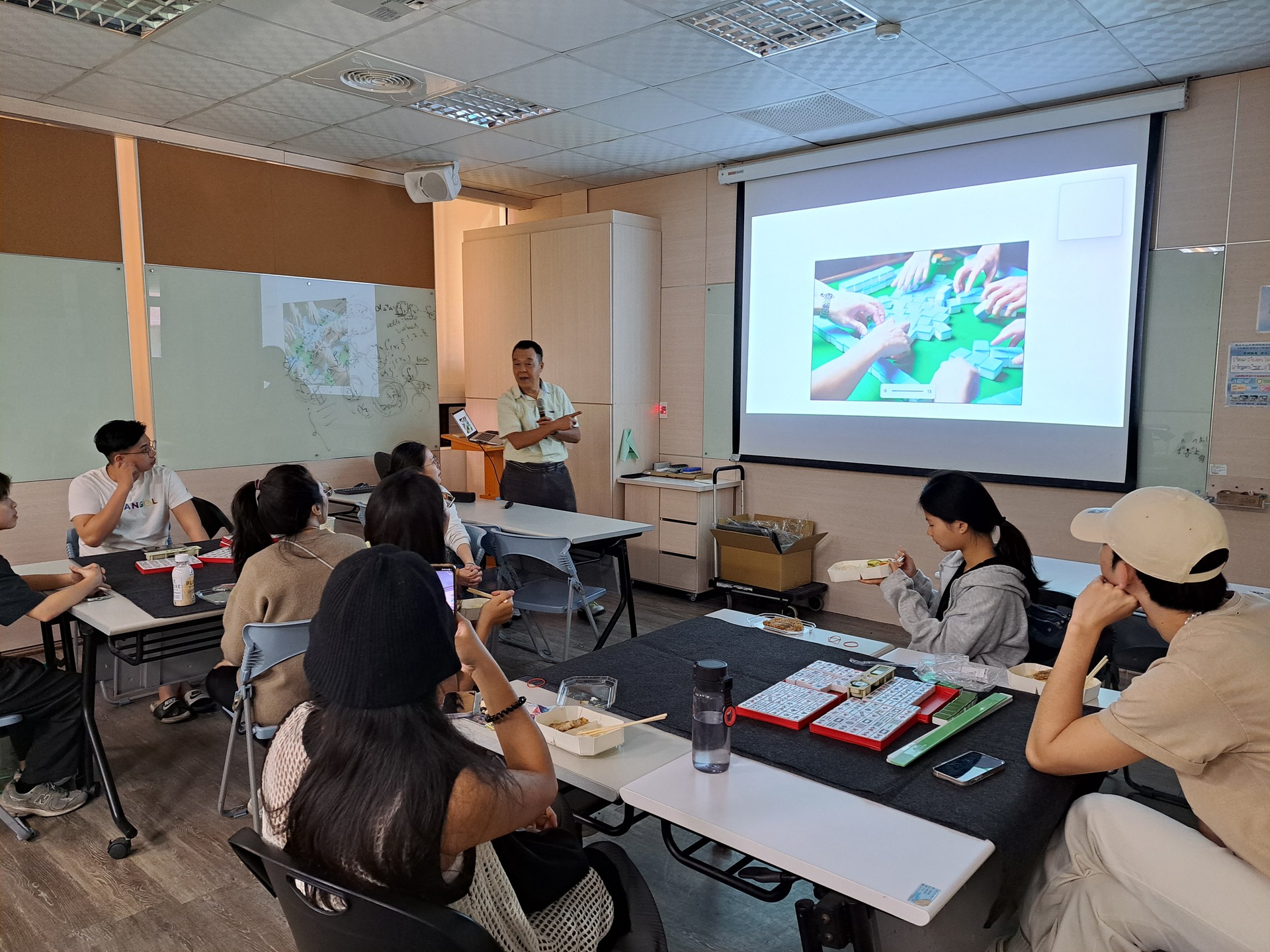
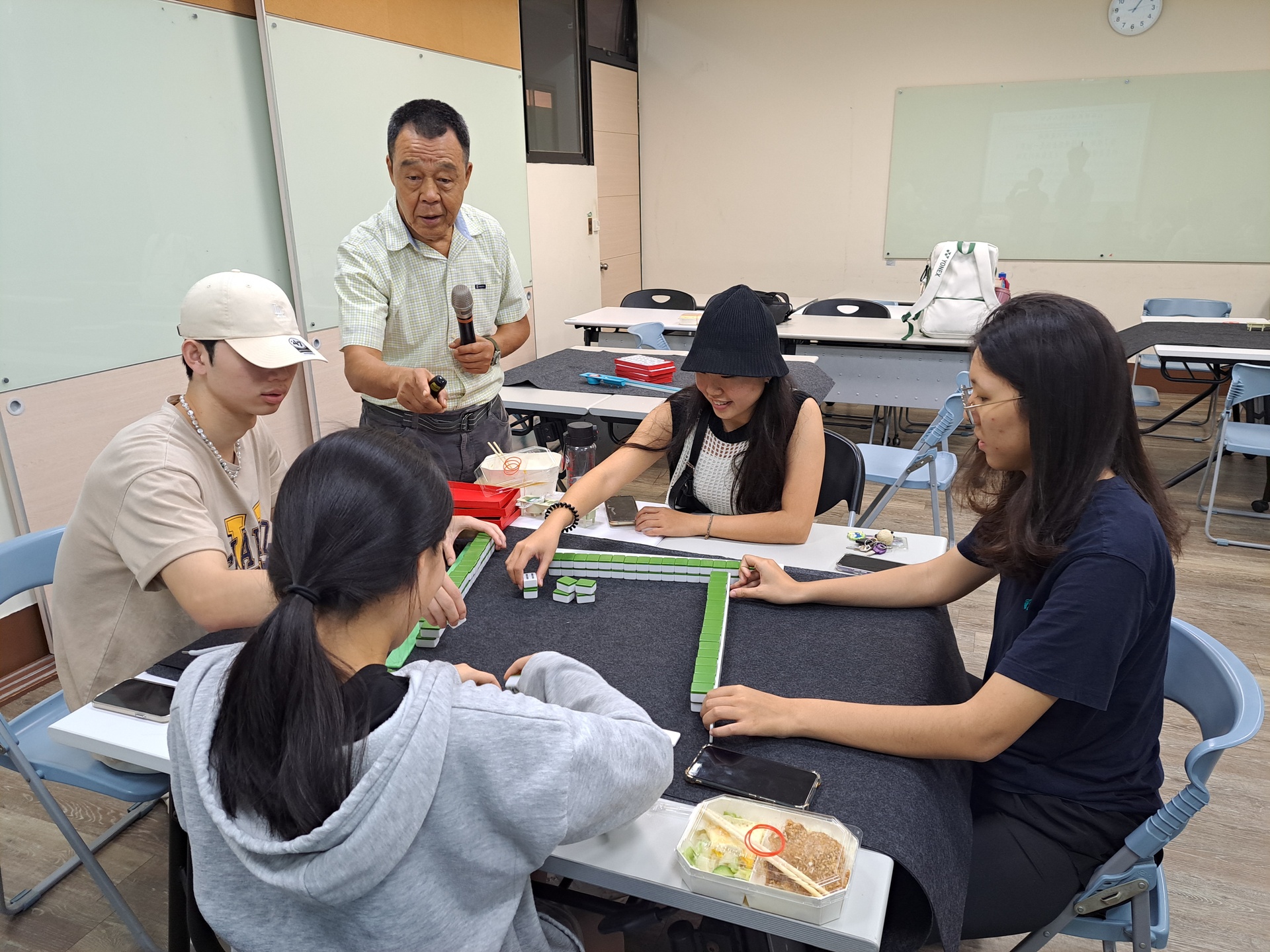
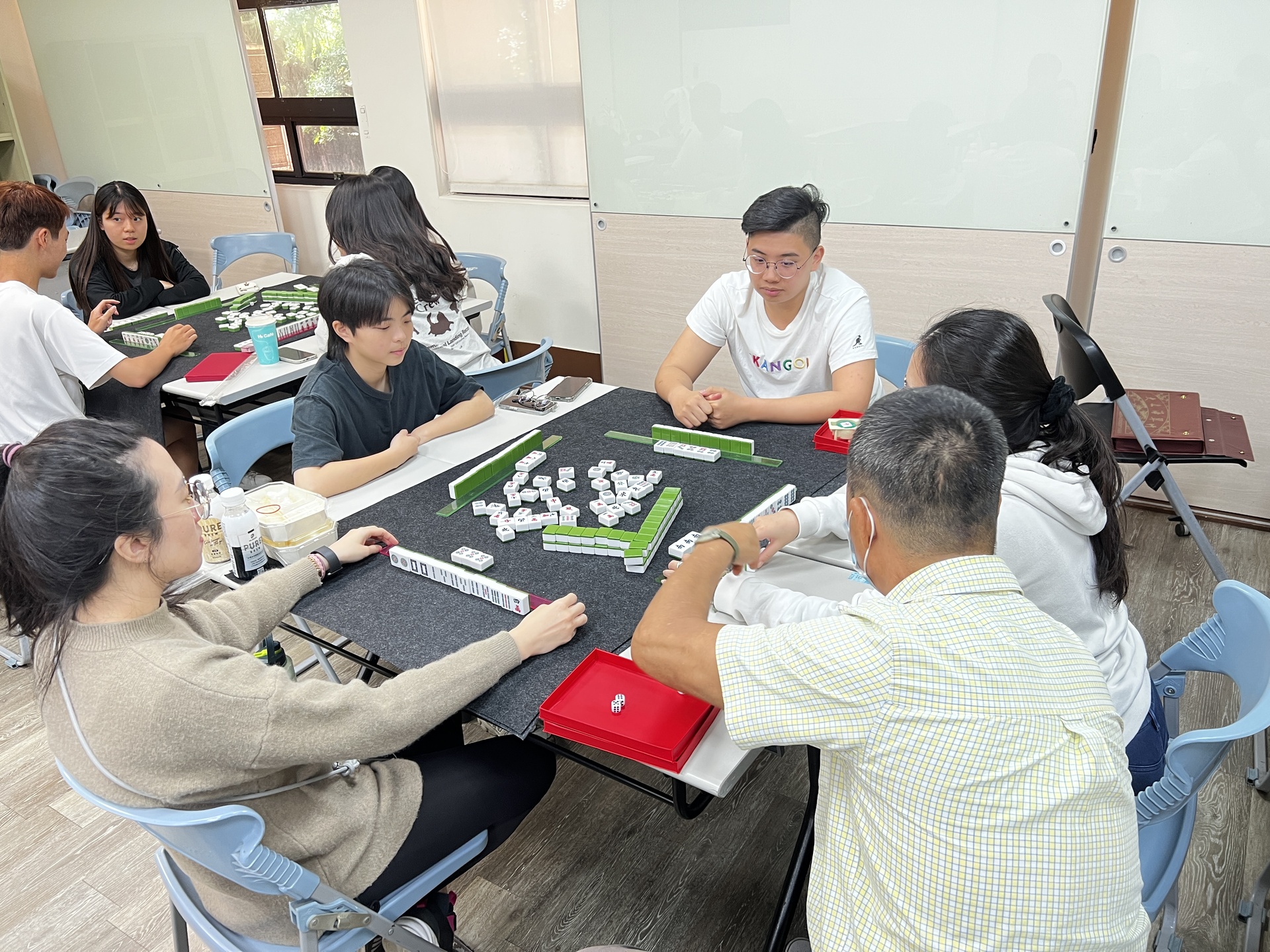
同學們享受打麻將的樂趣 !
今年過年有跟親友搓個幾圈麻將嗎?有沒有不戰見天亮不罷休?許多人平時喜歡與三五好友打麻將,小賭怡情,中華國粹還不僅如此,甚至能訓練腦力與悟出人生道理。
管院英語學習角落於2月23日辦理本學期第 1 場交流活動 ——「來場桌上游泳 ! 英文交流中華國粹「麻將」練智力」,邀請到華語中心的陳潮州老師,帶大家用英文打麻將。麻將是台灣民間常見的棋牌類遊戲,多用作文娛或賭博活動,尤其常見於農曆新年等大時大節。麻將在不同國家和地區有不同玩法,在台灣主要的玩法叫「台灣麻將」,又稱十六張麻將玩法。
陳老師首先以英文簡單介紹麻將的玩法,一副麻將共有 144 張牌,開局經骰子決定後,從莊家開始輪流順時針拿四張牌,共拿四次,每人都有十六張牌後,莊家再補拿一張牌,俗稱「開門」。
遊戲開始時,由莊家先出牌,及後每人都會輪流從牌牆中拿一張、打一張,目標是把手中的麻將經由抽牌、吃、碰等方式組成五個「組合」 ( 一個「組合」由三張牌組成 ) ,再加一對「將」( 一對「將」由兩張相同的牌組合 ) ,以達成糊牌。在講解規則的同時,陳老師不時教授麻將相關的英語,例如洗牌是 Shuffing、組合是 Legal Hand,自摸是 Self-drawing the winning tile。
此外,老師不忘從麻將中談人生哲理。他指麻將的重心不只是規矩,學了規矩、跟隨規矩去玩是一回事,但要在規矩中遊走,才是麻將的真諦。英文中有句俗諺是「You are what you eat」, 意思是你吃什麼,食物給予的營養或熱量,就會反應在我們的身體與容貌上 ; 麻將亦一樣,你的本質也可以從你打麻將的過程反映出來 – 「You are what you PLAY ! 」。老師也引用了著名影星茱莉亞·羅勃茲 ( Julia Roberts ) 的訪談片段,精要地解釋了麻將是 「To create order out of chaos based on random drawing of tiles」,彷彿跟人生一樣。
| 英語小補丁 | |
| 洗牌 | Shuffing |
| 組合 | Legal Hand |
| 自摸 | Self-drawing the winning tile |
(社會系徐考澧撰稿/管院媒體編修﹚
—--------------------------------------------------------------
【Management College Presents: A Tabletop Swim ! The Chinese Quintessence Mahjong for Intelligence Training - English Corner】
The English Corner of the College of Management organized its first exchange activity of the semester on February 23rd — “A Tabletop Swim ! The Chinese Quintessence Mahjong for Intelligence Training”, inviting Mr. Chen Chaozhou from the Chinese Language Center to lead a session on playing Mahjong in English. Mahjong is a common game among the Taiwanese populace, often used for entertainment or gambling, especially during significant festivals such as the Lunar New Year. There are various ways to play Mahjong in different countries and regions, with the primary method in Taiwan known as “Taiwan Mahjong”, or the sixteen-tile Mahjong.
Mr. Chen began with a simple introduction in English to the rules of Mahjong, where a set consists of 144 tiles. The game starts with the roll of dice to determine the dealer, who then leads the players in taking turns to draw four tiles clockwise, doing so four times until each player has sixteen tiles. The dealer then draws an extra tile, a move colloquially known as “break the wall’. The game proceeds with the dealer discarding the first tile, followed by each player taking turns to draw from the wall and discard, aiming to form five ‘sets’ (each ‘set’ comprising three tiles) plus a pair of ‘eyes’ (two identical tiles), to complete a winning hand. Throughout the explanation, Mr. Chen taught Mahjong-related English vocabulary, such as ‘Shuffling’ for mixing the tiles, ‘Legal Hand’ for a valid set, and ‘Self-drawing the winning tile’ for winning by drawing a tile oneself.
Moreover, Mr. Chen shared life philosophies through Mahjong. He pointed out that the essence of Mahjong goes beyond rules, truly understanding Mahjong means navigating through the rules. An English proverb, ‘You are what you eat’, implies that our diet reflects on our body and appearance; similarly, ‘You are what you PLAY’ reflects one's nature through their approach to playing Mahjong. Mr. Chen also cited an interview video with famous actress Julia Roberts, succinctly explaining Mahjong as ‘To create order out of chaos based on random drawing of tiles’, paralleling life itself.
Although Mahjong is commonly associated with gambling, as a game, it encompasses skill, strategy, and calculation, serving as an effective prevention against dementia in the elderly. Through this event, students learned how to introduce Mahjong and its rules in English, along with key Mahjong terminology such as shuffling, legal hand, and self-drawing. Students also discovered the intricacies of Mahjong gameplay after class practice, even more looking forward to sharing the fun of mahjong with foreign friends.
(Written by. Alex Tsui, The Department of Sociology / Proofread by the Media of the College of Management)
【英語學習角落系列講座介紹】
💡 演講內容以英文進行
💡 於活動結束時發放「英語實踐歷程檔案計畫」點數證書
💡想了解更多講座資訊,歡迎來信詢問-管院英語學習角落專用信箱: engc@cm.nsysu.edu.tw

